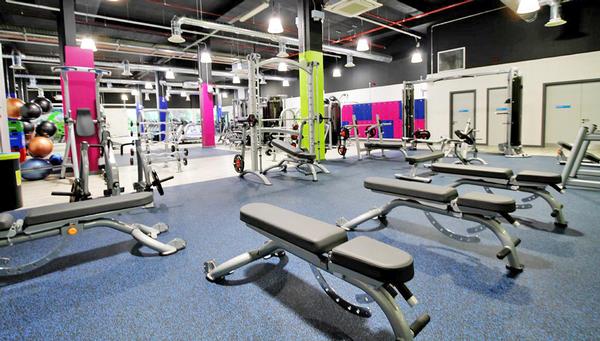Talking point: Are councils asking too much of leisure centre contract operators?
As a number of large sport and leisure contracts come up for renewal and with councils putting ever more pressure on operators, we ask whether councils are heading into dangerous territory by being too demanding

Local government leisure contracting is running into some interesting challenges as we head into the fourth decade of management contracts.
From a naive beginning in the late 80s with Compulsory Competitive Tendering, contracting has matured as a sector and now boasts a roster of serious players with vast operational expertise.
But do too many councils expect operators to step up and make the numbers add up for them, while putting pressure on them to perform? And if so, are the cracks starting to show?
Faced with the choice between signing up for an onerous 25 year contract, during which the council will expect escalating fees and the alternative – the freedom to compete on the open market – some operators are privately suggesting their management contracting days are numbered.
Why pay a penalty to a council for the right to operate a facility you can never own, when for far less investment, you can start your own business right over the road with no constraints.
If councils push too hard, they may spawn a whole new raft of competition, as management contractors throw in the towel and decide to compete instead.
And with only two main revenue streams – swim lessons and gym memberships, that competition would hurt badly.
Chris Marriott,
Director,
The Sports Consultancy

Local authorities could well be looking back on the last two to three years as somewhat of a golden period for them in terms of getting new sports and leisure centres built and funded.
Low rates of borrowing, combined with a very competitive operator market have made these new schemes affordable.
Some have questioned the sustainability of these “good times” given just how aggressively some of the operators have been bidding for the management contracts. We may well start to see some operators pull back a little now as they consolidate some of the contracts they’ve been winning, focusing on making sure they achieve those management fees they have committed to.
In the meantime, we’re starting to see some local authorities coming to the market being over-ambitious about what management fee they expect to achieve for their contract, perhaps influenced by conversations with a neighbouring authority which might have secured a stellar deal. However, when assessing the likelihood of getting a decent management fee, they need to take into consideration lots of different factors, such as whether the council is wanting to protect prices, whether it wants to protect various user groups and clubs, the split of maintenance responsibilities, etc. The more restrictions they place on a contract, the more it will cost them. Simple as that. They cannot have it all.
"The more restrictions councils place on a contract, the more it will cost them. Simple as that"

Steve Bambury,
Commercial director,
1Life

Over the past 10 years, the financial expectations placed on operators have increased significantly.
This is generally seen in either a considerably reduced fee for the operator’s services or a requirement for operators to pay a fee to the authority.
Increasing utility costs have created additional financial pressure when it comes to the performance of local facilities, while rising living costs and the growth of private sector ‘value’ offerings mean the customer is now expecting more for less.
Despite these pressures, councils still wish to maintain a significant interest in the operation of facilities, from programming and staffing through to core pricing and opening times. This often results in the local leisure centre not being on an even playing field with the competition from the private market, and this hampers the profitability of contracts.
A vast number of operators have already tested the private market in recent years, trying to find a niche that will ensure they’re less reliant on the local authority business. I think we’ll see some ringfencing their local authority operations completely, while most will be more selective in the contracts they bid for.
The private market provides great opportunities for operators to concentrate on their key strengths without the constraints of local authority buildings and contracts, allowing them to maximise their success.
"The private market provides a great opportunity for operators to concentrate on their key strengths without the constraints of local authority buildings and contracts"

Peter Gunn,
Chief executive,
BH Live

The open tender process can fall down when evaluation isn’t robust enough to identify clear gaps.
External consultants have a role to play in this process, by ensuring operators aren’t tempted to promise big savings simply because this is what councils want to hear.
Council contracts continue to be attractive, as most quality facilities are in public ownership. Certainly for us, as a social enterprise and registered charity, this is the most effective way of delivering our broader objectives – increasing participation and promoting the benefits of physical activity.
Profit isn’t the main motive, and I hope councils see the benefit of working with organisations which have shared goals.
If contracts are constructed correctly, with this shared ethos, there’s no reason why profit cannot flow from this. The difference for us is that all profits are reinvested into services and not distributed to shareholders. Either way, there can continue to be a ‘win-win’ for all involved.
However, it’s also important to diversify and not fall into the trap of entering into contracts that aren’t sustainable for either party and may have a relatively short tenure. For example, BH Live has set out to develop a small number of significant strategic partnerships with councils, based on long-term contracts covering theatre, conferencing, sport and leisure.
We also operate an event ticket agency, have JVs in catering and direct relationships with landlords for standalone gyms, to create commercial income streams to support our social objectives and allow us to invest more in the public sector facilities we operate.
"Profit is not the main motive, and I would hope councils see the benefit of working with organisations which have shared goals"
Justin Jardine,
Associate director,
GLL

GLL wants sport, leisure and wellbeing to be affordable and accessible for everyone in the community, achieving the mantra of ‘More People, More Active, More Often’. The current public sector leisure market is at a watershed moment in its efforts to achieve this goal.
We have to accept that the market is under increasing strain. Councils are facing significant financial pressure to deliver savings, and the market has become extremely competitive, due to the proliferation of low-cost gym operators.
Councils must ensure they’re getting best value for their services, but this shouldn’t be to the detriment of the social good which public services are there to provide for the public.
Leisure operators are already being very selective about the contracts they tender for due to a number of market factors, including reduced margins and over-ambitious starting points by councils and their advisors. However, many forward-thinking councils have decided to invest in their portfolios and set affordability thresholds in tenders that are realistic and achievable for operators, whilst protecting the important social value of those services.
Organisations, such as GLL, that predicted this shift in the market, have already diversified their business into services.
Our view is that this situation will persist until the public sector leisure market both consolidates and corrects itself over the next few years.
"The market has become extremely competitive due to the proliferation of low-cost gym operators"
John Bates,
Director,
Places for People Leisure

Places for People Leisure is aware that some local authorities are transferring an unacceptable level of risk to the leisure operator when outsourcing their leisure facilities.
The Sport England template that was established for use in the industry, which represents fair and equitable terms for both the council and the operator, is being excessively varied in some instances. This includes the removal of utility benchmarking and income benchmarking from the Benchmarking Schedule, which forces the operator to take full risk in both of these potentially volatile areas.
As a consequence, there’s likely to be a reduction in contractor appetite and, therefore, diminished competition.
We continue to look at opportunities in the local government outsourcing sector but also in the private sector, where shorter-term leases without the constraints of pricing controls and programming requirements can be more attractive than long-term leisure management contracts, which may have a greater risk profile.
"The Sport England template, which represents fair and equitable terms for both council and operator, is being excessively varied in some instances"

Duncan Jefford,
Regional director,
Everyone Active

Leisure is not a statutory service. Local authorities up and down the country are having to move from what was traditionally a service that cost money to one that generates revenue. And to do this, in the majority of cases, operators are now paying a managing fee to run the facility, rather than the operator receiving a managing fee.
I don’t think that councils are putting too much pressure on operators, however, they are asking for a bigger and bigger management fee from operators. There’s a frustration from an operator’s point of view, because we’re paying that management fee but we don’t necessarily have freedom on pricing and programming.
Unless we get real freedom in this area, we can’t always hit the level of income that the council is looking for under the contract.
As an operator, we’re not going to move away from council contracts. In fact, we think the local authority market is as buoyant as it’s ever been. But if councils want a bigger return, then the quality of facilities needs to be as good as it’s ever been, because it’s got to compete with the private sector. And secondly, we need to be given real freedom – the more freedom we have over the pricing and programming, the better position we’ll be in to pay councils more money.
"The more freedom we have over the pricing and programming, the better position we’ll be in to pay the council more money"

Have your say
If you have an opinion or new thoughts to add to the debate about council contracting, write to [email protected]

Swim Manager
General Manager
General Manager
Swim Teacher
Customer Service Advisor
Sports Facility Manager - LSBU Active
Team Leader
Fitness Motivator
Swim Teacher
Duty Manager (Dry)
Head of Operations
Senior Leisure Officer
Swimming Teacher
Swimming Teacher
Company profile

Featured Supplier

Property & Tenders
Company: Jersey War Tunnels
Company: Savills
Company: Cotswold Lakes Trust
Company: Knight Frank
Company: Belvoir Castle















